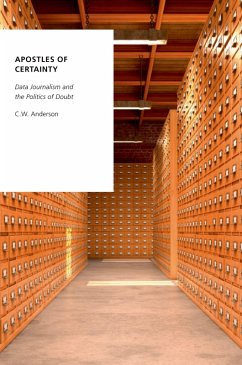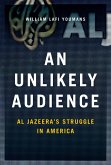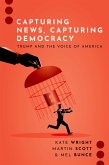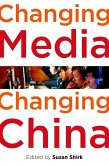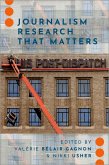From data-rich infographics to 140 character tweets and activist cell phone photos taken at political protests, 21st century journalism is awash in new ways to report, display, and distribute the news. Computational journalism, in particular, has been the object of recent scholarly and industry attention as large datasets, powerful algorithms, and growing technological capacity at news organizations seemingly empower journalists and editors to report the news in creative ways. Can journalists use data--along with other forms of quantified information such as paper documents of figures, data visualizations, and charts and graphs--in order to produce better journalism? In this book, C.W. Anderson traces the genealogy of data journalism and its material and technological underpinnings, arguing that the use of data in news reporting is inevitably intertwined with national politics, the evolution of computable databases, and the history of professional scientific fields. It is impossible to understand journalistic uses of data, Anderson argues, without understanding the oft-contentious relationship between social science and journalism. It is also impossible to disentangle empirical forms of public truth telling without first understanding the remarkably persistent Progressive belief that the publication of empirically verifiable information will lead to a more just and prosperous world. Anderson considers various types of evidence (documents, interviews, informational graphics, surveys, databases, variables, and algorithms) and the ways these objects have been used through four different eras in American journalism (the Progressive Era, the interpretive journalism movement of the 1930s, the invention of so-called "precision journalism," and today's computational journalistic moment) to pinpoint what counts as empirical knowledge in news reporting. Ultimately the book shows how the changes in these specifically journalistic understandings of evidence can help us think through the current "digital data moment" in ways that go beyond simply journalism.
Dieser Download kann aus rechtlichen Gründen nur mit Rechnungsadresse in A, B, BG, CY, CZ, D, DK, EW, E, FIN, F, GR, HR, H, IRL, I, LT, L, LR, M, NL, PL, P, R, S, SLO, SK ausgeliefert werden.

